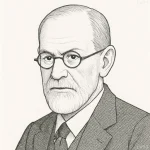“I am indebted to my father for living, but to my teacher for living well.”

- July 20, 356 BC – June 10, 323 BC
- Born in Macedonia
- King of Macedonia
table of contents
Quote
“I am indebted to my father for living, but to my teacher for living well.”
Explanation
This quote, credited to Alexander the Great, reflects his profound respect for education and philosophy, particularly his reverence for Aristotle, his tutor. By drawing a distinction between biological life and the quality of life, Alexander elevates intellectual and moral cultivation above mere existence. He acknowledges that while his father, Philip II, gave him life and a kingdom, it was his teacher who taught him how to rule, think, and live virtuously.
In ancient Greek thought, especially within the tradition of Aristotle and Plato, education was not merely functional—it was a path to virtue, wisdom, and excellence (aretē). Alexander’s admiration for Aristotle’s instruction in ethics, science, and politics underscores the idea that great leadership depends not only on birthright but on the disciplined development of character and intellect. The quote is also a subtle expression of filial independence, suggesting that true legacy arises not from inheritance but from how one lives and leads.
Today, this statement resonates in cultures that value mentorship, learning, and personal growth. It affirms the idea that teachers, guides, and thinkers shape the lives of future leaders, often more profoundly than parents or circumstances. In a world where success is often measured by material outcomes, Alexander’s words remind us that wisdom, ethics, and a well-lived life are the true markers of greatness.
Would you like to share your impressions or related stories about this quote in the comments section?



